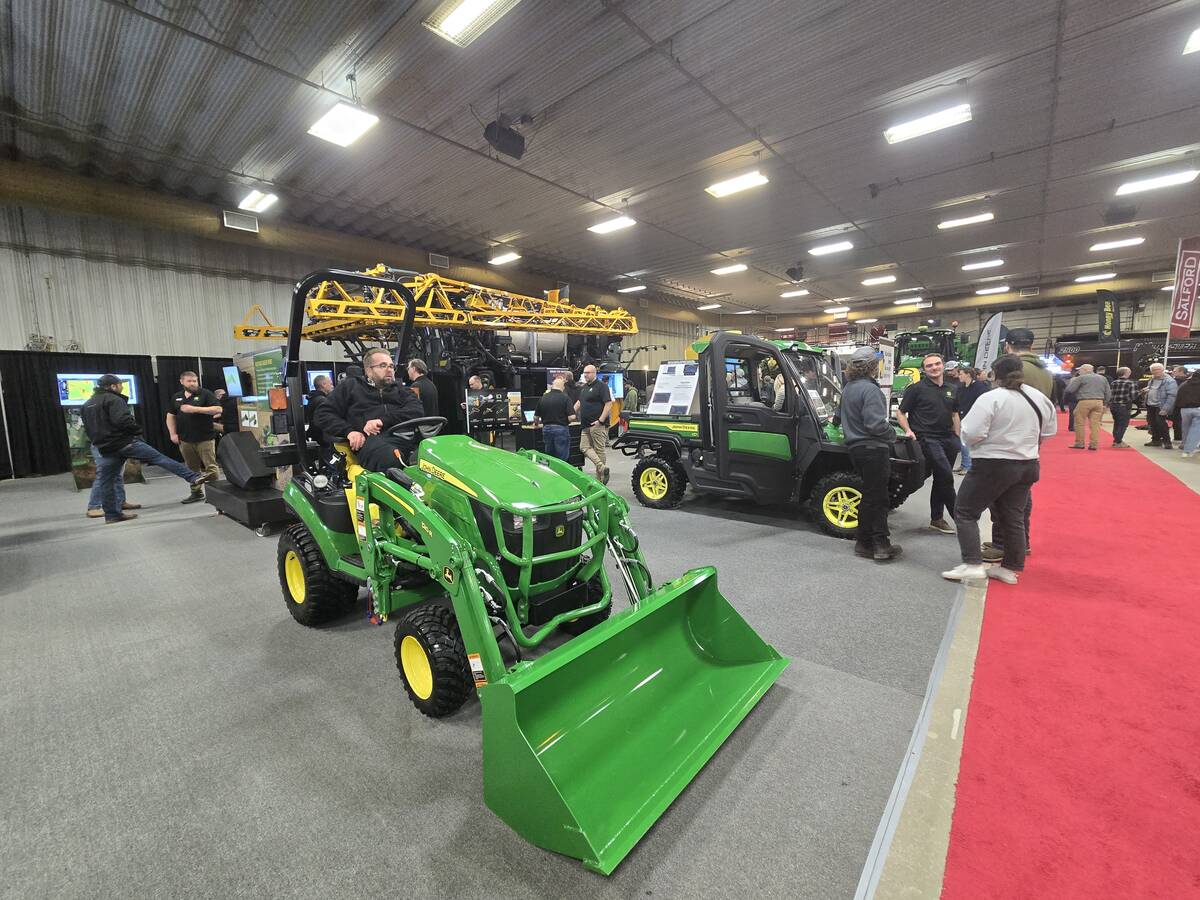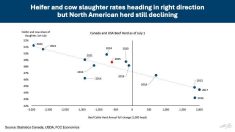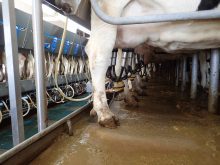The likely U.S. secretary of agriculture says he’ll be “happy” to again advance country-of-origin labelling (COOL) policies.
Tom Vilsack, during his Feb. 2 confirmation hearing of the Senate Agricultural Committee, confirmed he is open to reintroducing COOL laws – if they comply with World Trade Organization (WTO) standards.
COOL refers to laws requiring retailers to identify the country of origin for specific commodities.
“I’m happy to work with you and your staff on anything that would allow us to advance country-of-origin labelling,” Vilsack said during a back-and-forth with a Republican senator. “If there is a way to get WTO compliant, I would be more than happy to work with you, and look forward to that.”
Read Also

Manitoba John Deere dealers plan merger
Two retail dealership chains handling John Deere farm equipment in Manitoba say they plan to merge, bringing 13 locations under one organizational umbrella.
Not long after Obama was first elected in 2008, mandatory COOL was brought in by the USDA. By 2015 it was struck down by the WTO, with Mexico and Canada successfully arguing the policy put cattle and pig producers in those countries at a disadvantage.
According to the WTO’s ruling at that time, Canada would be able to put in retaliatory tariffs against the United States if similar COOL requirements are brought in under President Joe Biden; but Vilsack made clear he is cautious of the WTO’s previous decision.
The WTO’s dispute settlement process has been ineffective ever since Donald Trump refused to appoint someone to a vacant adjudicator position, leaving the body incapable of rendering decisions.
Some countries, including Canada, have found temporary work-arounds to settle disputes; but the potential reintroduction of controversial COOL laws in the U.S. would no doubt reinvigorate efforts by Canada, and others, to ensure the dispute resolution body is working effectively.
Biden’s administration has created cautious optimism the United States will become a more rules-based, multilateral trading nation with respect for international institutions like the WTO.
But clearly Vilsack has not yet ruled out bringing back the controversial COOL laws.
“I’m absolutely willing to listen to anybody and everybody who has an idea on how we can circumvent or get to a point where the WTO doesn’t slap it down, that creates retaliatory impacts on American agriculture,” he said. “I need help in that respect. We can ignore the WTO, but then we get the retaliation and that’s just not a good situation.”
During his hearing, he made clear getting into such a situation is not his intention, telling one senator he would not be introducing the same COOL laws that were in place four years ago.
While Vilsack’s comments about COOL understandably garnered attention in Canada, most of his cordial confirmation hearing focused on other issues.
The longtime Biden supporter made clear he shares the president’s vision for addressing climate change, telling senators he will harness the USDA’s “expertise in science and conservation to work with farmers, ranchers and forest owners to create new sources of income tied to their good climate practices.”
Vilsack, who has been serving as president of the US Dairy Export Council since 2017, appeared to go out of his way during his testimony to encourage lawmakers to work with farmers on how best to create a carbon market that would benefit producers.
Lawmakers from both sides of the aisle unanimously confirmed Vilsack – Republicans and Democrats spoke glowingly of him – and a similar fate is expected after his Senate confirmation hearing.
His appointment is not without criticism, however.
Organizations representing Black farmers, and some civil rights groups, charge Vilsack failed to get rid of systemic racial discrimination taking place within the USDA. Early in his opening remarks, he addressed that criticism.
“I will take bold action and work with this committee to address discrimination in all its forms across USDA agencies, offices and programs. I will ensure all programming is equitable and work to root out generations of systemic racism that disproportionately affects Black, Indigenous and People of Colour,” he said. “I will build the most diverse team in the department’s history, one that looks like America, and will extend that commitment across all USDA agencies and offices.”


















